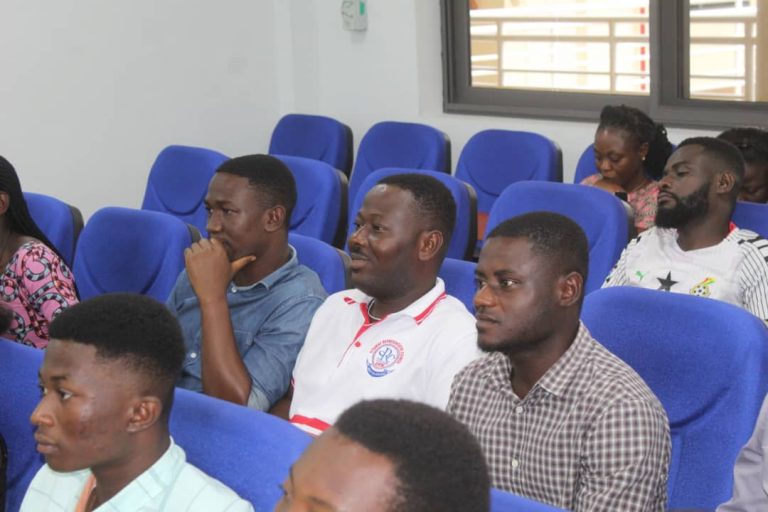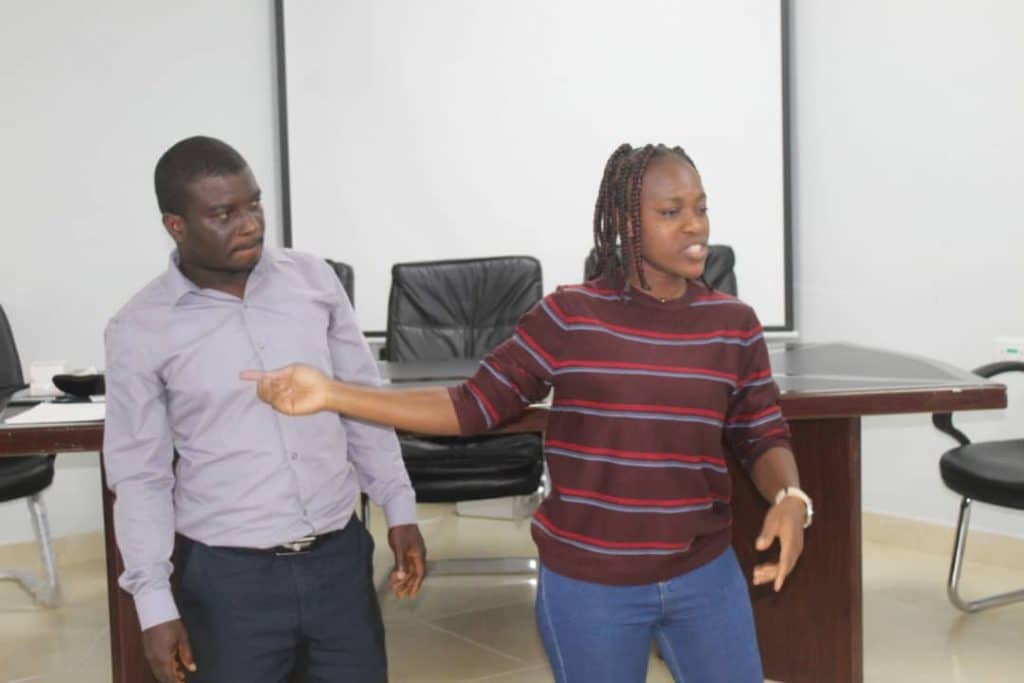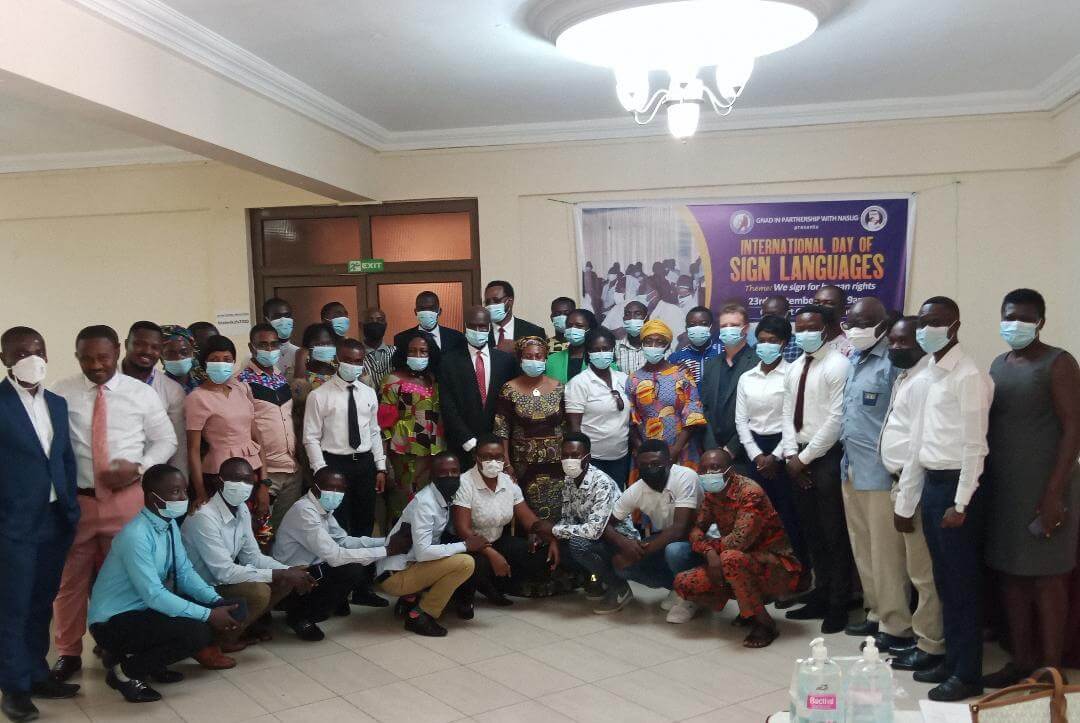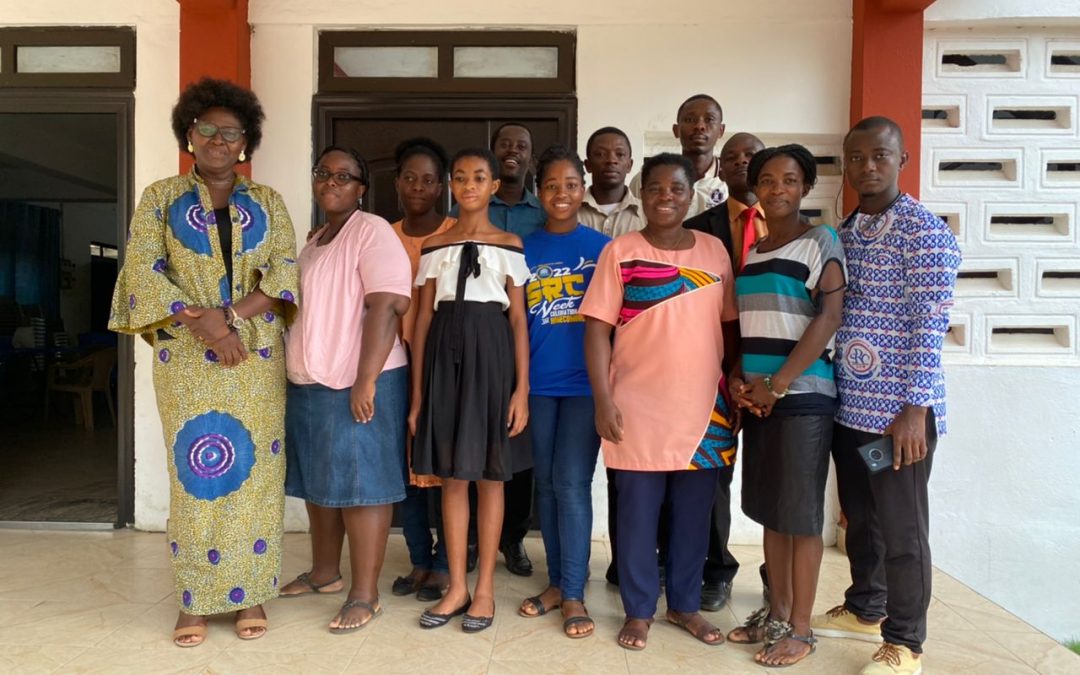NASLIG, WOU, and UEW Terp training workshop
A fourth professional development training for sign language interpreters in Ghana in 2022 was organized for both NASLIG and non-NASLIG members from the 25th of July to the 5th of August.
The training workshop was organized by the executive leadership of NASLIG in collaboration with the Western Oregon University- WOU and the University of Education, Winneba- UEW.

Week 1 of the workshop focused on Introduction to Demand-Control Schema- DCS for interpreters, how interpreters could utilize Non-evaluative Language/feedback to discuss the interpreting work with their colleagues without killing their spirit for the job and the need for interpreters to consider Team Interpreting as much as possible when going into interpreting assignments.
Week 2 of the workshop focused on Case Supervision where interpreting cases were designed and discussed by participants in groups to highlight possible demands, control options, and ethical situations that emerged from these cases. Participants were taken through Sign-to-Voice practice, which they referred to as the “almighty” due to its difficulty. Both signed monologues and dialogues were interpreted into voice by participants for this exercise. There was also a panel discussion where the National President, Mr. Clement Sam, and his Vice, Mr. Robert Frimpong Manso of NASLIG, Dr. Fobi Daniel, and Professor Elisa Maroney were interviewed to share their experiences on their journies of interpreter practice. Participants were finally reminded by Mr. Joseph Obeng Afriyie to take Self-care for interpreters seriously so as to prolong their good health and wellbeing.

The workshop was aimed at enhancing and enriching the interpreting competencies of sign language interpreters in Ghana through continuous education. Lead facilitators for the workshop were Professor Elisa Maroney, Coordinator of Interpreting Studies- WOU, Dr. Fobi Daniel, Lecturer, Deaf Education- UEW, and Dzeani Phinehas, National Secretary and Interpreter Trainer- NASLIG.
Participants exhibited a communal atmosphere and strove almost always to use Non-evaluative language/feedback during the workshop. Participants said they felt close to experienced Interpreters who for the first time were seen not on national TV but in person because these experienced ones made themselves available to everyone at the workshop.

Other participants also indicated that in all, it was refreshing being around a pool of interpreters from all over the country sharing diverse interpreting experiences.



